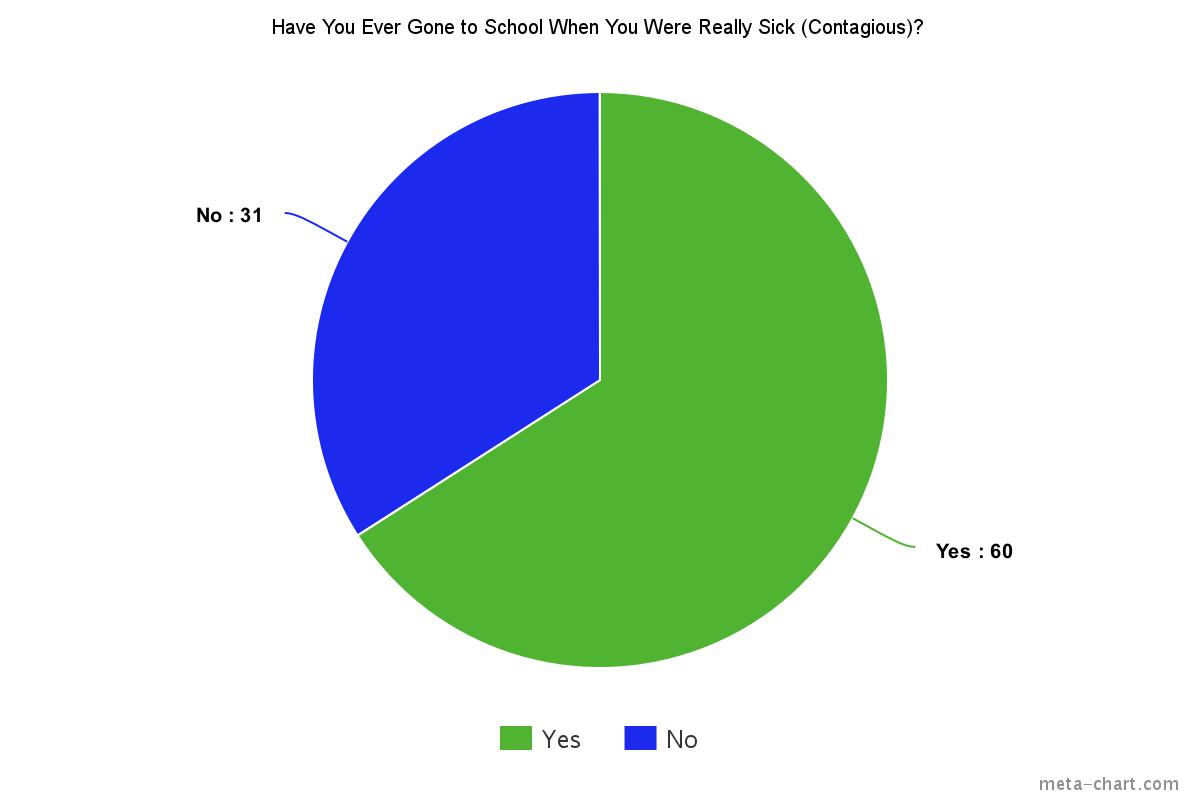
When a student wakes up in the morning feeling ill, it can be difficult for him or her to decide whether or not to go to school. Some decide to take a day off from school to rest, but many still go to class and try push through the school day.
However, what is considered to be too sick for students to go to school?
According to the Centers for Disease Control and Prevention (CDC), students should stay home when they are sick until at least 24 hours have passed since they last had a fever or common signs of a fever, such as feeling warm, chills, sweating, and a flushed appearance, without having used a fever-reduction medication. The agency says that this can help stop the spread of germs and illnesses, especially the flu, throughout schools.
In many cases, a child or teenager may not have a fever but still have common symptoms of a virus, a cold, the flu, or a bacterial infection, making it difficult for parents to determine if their child is too sick to make it through the school day or if they just have a mild sickness.
When parents are making the decision whether or not to send their sick child to school, they need to ask themselves three key questions, as stated by the American Academy of Pediatrics:
Does the child’s illness keep him/her from comfortably taking part in activities?
Does the sick child need more care than the staff can give without affecting the health and safety of other children?
Could other children get sick from being around your child?
According to the Wake County Public School System, students shouldn’t attend school if they have a fever of 100℉ or higher, nausea or vomiting, a severe headache, diarrhea, red and watery eyes with yellow drainage, or an undiagnosed rash. The school system suggests that staying home when sick can help prevent the spread of germs to other students and faculty.
WCPSS’s sick policy, similar to the recommendations of the CDC, also states that kids should stay home until they have been naturally without a fever for 24 hours or more. It goes on to say that children with a fever should not take a fever-reduction medication and then sent back to school.
School nurses are in charge of implementing these district policies and making sure that sick students know when to go to school and when to rest at home.
Jennifer Brooks, Leesville’s school nurse, said that kids shouldn’t attend school when they are ill and contagious because it could potentially make them more sick.
“[A student’s] immune system is compromised while they’re sick,” said Brooks. “They’re letting themselves be more susceptible to germs [by attending school].”
She went on to explain how students attending school while sick is uncourteous, as doing so could harm others around them. “It’s just not fair to other kids at school,” said Brooks. “[The sickness] can spread, and the other kids can become sick if they’re exposed to [the sick students].
Brooks also stressed that if a student becomes ill during the school day and has symptoms such as a fever, vomiting, diarrhea, etcetera, a parent needs to go to the school and pick up their child. Then, he or she must wait at least 24 hours until their fever or other serious symptoms are gone.
Even though there are many specific guidelines stating that students should stay home when they are very sick, many still push through school. In a random survey of 91 Leesville students, 66% said that they have attended school before when they were really sick. The other 34% said that they have never gone to school when they had a severe illness.
Jackson Webb, sophomore, said that he still goes to school even if he is sick.
“I go to school [when sick] because my parents force me to,” said Webb. “I’ve got to make nice grades.” He went on to say that he thinks that if a student has a fever over 100℉, vomiting, or flu-like symptoms, they should stay home.
Angela Scioli, a social studies teacher at Leesville, said that the decision a sick student makes to stay home or go to school depends on the person.
“People handle sickness really differently,” said Scioli. “People have different pain tolerances and people have different sickness tolerances.”
Scioli also said that she believes many students attend school when ill because it follows a larger trend in society that doesn’t create time to handle illness and other things such as grieving and childbirth. “We’re afraid that if we hit pause to attend to our own personal needs that it will affect us or the people we care about,” said Scioli.
When students are feeling under-the-weather, they should be sure to consider the recommendations of experts and identify their symptoms. Sick students should be sure to evaluate their situation and understand the risks they could pose to students and staff so they can make the decision that is best for them.